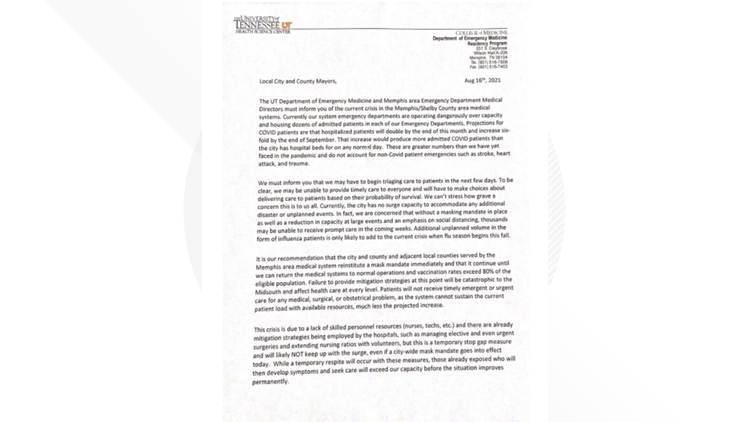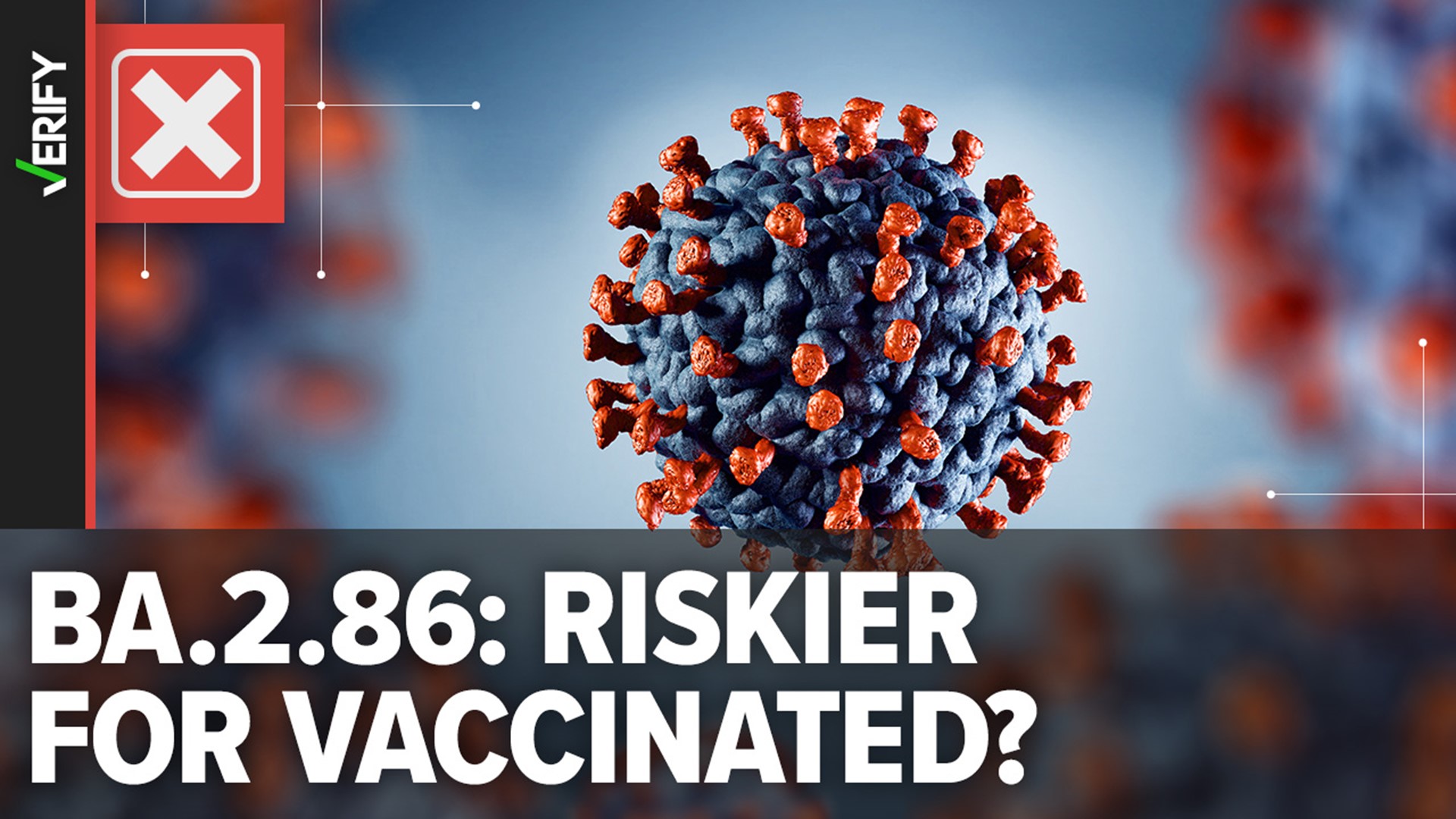MEMPHIS, Tenn — The University of Tennessee Health Science Center along with top doctors from every hospital in the Memphis area sent a grave warning to Memphis and Shelby County officials about the area hospital situation.
The letter said "currently our system emergency departments are operating dangerously over capacity and housing dozens of admitted patients in each of our Emergency Departments". They expect hospitalized COVID patients to double by the end of August and increase six-fold by the end of September, which would mean more admitted COVID patients than the City of Memphis has beds for on any normal day.
The letter also said "these are greater numbers than we have yet faced in the pandemic and do not account for non-COVID patient emergencies such as stroke, heart attack, and trauma".
They are concerned about not being able to provide timely care to everyone and said they will have to make decisions on care based on the probability of survival. And said, they may have to begin triaging patients in the next few days.
"We can't stress how grave a concern this is to all of us." "Currently the city has no surge capacity to accommodate any additional disaster or unplanned events".
When the flu season begins, health officials said additional unplanned flu cases will add to the current crisis.
An additional point of the letter stated, patients will not receive emergency or urgent care for medical, surgical or obstetrical problems.
The Shelby County Health Department issued a county-wide mask mandate on Wednesday, August 18, which goes into effect at 7 a.m. on Friday, August 20.
The Tennessee Hospital Association’s President and CEO Wendy Long, M.D., issued the following statement:
“Tennessee hospitals are once again asking for support from our communities in combatting the COVID-19 pandemic. Every hospital in our state is experiencing capacity issues due to the surge in COVID patients. All ICU beds are currently full in most hospitals in every major metropolitan area of the state. These are the hospitals that normally accept transfers of the sickest patients from other hospitals and healthcare providers, so when these facilities are full, it affects the healthcare system statewide. This means that if you or a loved one need treatment for any type of serious healthcare problem like a severe injury, heart attack, or stroke, you may not be able to access the care you need, when you need it.
COVID hospitalizations statewide have increased by over 800 percent in the 45-day period from July 1 to August 15 – from fewer than 300 patients to more than 2,300 and the number continues to rise. According to the Tennessee Department of Health, at least 88 percent of these COVID hospitalizations and 94 percent of COVID deaths are among unvaccinated individuals*.
The number one tool we have to protect ourselves and our community from COVID is vaccination. COVID-19 vaccines have been administered in Tennessee since late last year and have been proven safe and effective. Fortunately, over the past several weeks, Tennessee has seen an increase in vaccinations, and we are thankful for each and every Tennessean who has done their part to help end this pandemic by getting the vaccine. But it’s not enough. In order to reduce the strain on our hospital system and prevent more illness and death, more Tennesseans need to get vaccinated.
Unfortunately, the primary variant in our state, Delta, is much more contagious and is spreading at a much faster rate. This is why in addition to vaccination, masking in indoor public places is also recommended. A mask traps droplets that are released when the wearer talks, coughs or sneezes and containing the droplets helps stop the spread of COVID-19. Masking also protects the person wearing the mask by reducing the number of infectious droplets they inhale.
Our hospitals continue to be there to care for their communities, and individuals should not delay seeking care. Please help ensure there is a bed available for all Tennesseans in their time of need by reducing the spread of COVID by getting vaccinated and wearing a mask in public spaces.” *(data from May 2021 – July 2021)



